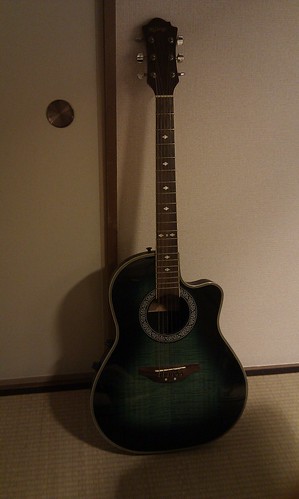I wrote about throwing things out back in April:
http://upgradeenglish.blogspot.com/2010/04/blog-post.html
A couple of weeks ago, I was throwing more things out late at night. When I went to the garbage collection area in the basement, I found this guitar lying among some broken umbrellas and a
disassembled set of shelves.
- disassemble 分解{ぶんかい}する、バラバラにする (definition from Eijiro on the Web)
× There seems to be nothing wrong with it, without the less-than-attractive green stain it has.
◯ There seems to be nothing wrong with it, [other than/except for/besides] the less-than-attractive green stain it has.
Use "
without" when you want to say that something that usually is included is missing. When you mean 以外, use "
other than", "
except for", or "
besides".
- without ならでは, 無し, なし, 亡しで, なしで, 亡しに, なしに (definition from jmdict)
- except 除いて, ならでは, 措いて (definition from jmdict)
- 以外 with the exception of, excepting, except for (definition from jmdict)
I don't really play guitar these days, so I'm not sure what to do with it.
× I could easily live except for it.
◯ I could easily live without it.
I'm trying to get rid of things, but as a musician, I just couldn't leave a perfectly good instrument sitting in the trash. Maybe I should give it away.


0 件のコメント:
コメントを投稿